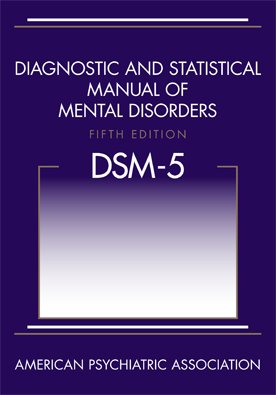
I’ve been doing some research on the upcoming DSM-5. The DSM-5 is the diagnostic manual of the American Psychiatric Association. It’s used by all psychotherapists and mental health professionals in diagnosing mental disorders, syndromes and other problems. The current version, DSM-IV-R is due to be replaced in the spring of 2013 by the DSM-5.
I’m learning some fascinating things. One is that the concept of “personality disorder” will be curbed or possibly discontinued. Apparently, many think that these labels excuse away personal responsibility or overly define the person in terms of his or her “personality disorder.” I know that the concept has always bothered me. I don’t like to tell clients I work with, “You have such-and-such personality disorder.” I much prefer to talk with them about their thinking, emotions and actions. Are there logical errors or fallacies in their thinking or emotions? Are there problems or patterns in their behaviors that lead them to self-defeating outcomes? This is constructive, I find. Telling people “you have a personality disorder” is not. Not only is it unkind labeling. It’s also a way of implying, “You have this illness and there’s nothing you can do about it. Somebody or something external must change you.” Not so–and if it were so, there would be no point of a psychotherapy (i.e. self-change) process in the first place. There would merely be pills or surgery to passively change or “cure” you. That’s not even science fiction, but magical thinking.
There is also reportedly a statement in the DSM-5 indicating that nothing in the manual is to be construed as having a legal definition in courts. Wow. That has more implications than you may realize. For years, courts have been using psychiatric labels to excuse away, or perhaps demand government benefits for, all kinds of things. People can file suit under the Americans With Disabilities Act for being victims of mental disorders just as for being physically handicapped. Mothers can drown their children in a bathtub and then rely on a legally sanctioned psychiatrist — who in turn has to rely on the DSM — to declare that she’s not a murderer, but the victim herself of a mental disease and could not help it. It’s true that the DSM-5 is not legally binding for courts, and is not a legal document. However, if the manual upon which courts and lawyers have been relying to justify their “official” decisions and pronouncements states that this manual is not valid for these purposes, it seems like huge changes could be afoot.
Perhaps most interesting, according to DSM-5 expert and suicidologist/psychotherapist Jack Klott, the trend in diagnostic procedures for mental health professionals is shifting away from the medical/disease model and towards a coping model. What this means in plain English is: Mental health professionals will be encouraged, by the DSM-5, to start looking at people’s irrational emotions and behaviors as ways of coping or adapting that they learned earlier in life, to which they understandably (although incorrectly) still cling. This is a bit of a neoFreudian/psychodynamic approach, and my own way of putting it (as a cognitive therapist) would be: “You develop certain false beliefs and behaviors which were understandable, even adaptive, given your past experiences. But now in the present, they no longer apply, and our challenge is to help you unlearn and replace them.”
The dramatic shift here is that diagnostic psychiatry — where the heart of the medical disease model for emotions and behavior has resided for many decades — is shifting back towards the mind, i.e. emotions, “defense mechanisms,” false beliefs, and the like. Psychiatry is rediscovering the mind and, in the process, psychotherapy.
As I said: Wow.
I have been writing for years about the error of psychiatry in ignoring the mind and thoughts/emotions in exclusive favor of the brain chemistry which is thought to determine everything. If the most prominent psychiatric association is starting to sing the same tune I have been promoting for years, then changes in the culture — to the extent that psychology and psychiatry influence the culture — will be coming. My sense is they will be largely positive ones.
This is probably a good thing for a lot of reasons. With the way things are going economically and politically at the moment, away from limited government and more towards a welfare statist/entitlement state/fascist control-of-business society, people are going to need all the rationality and mental health they can possibly achieve. Maybe that will open the door to a future filled once again with liberty and freedom, demanded by a mentally healthy, self-assertive population who yearns for it.
Psychiatrists are now saying, in essence, “Hey, we’re not all brain chemistry. We have thoughts and feelings too.” You think?
Be sure to “friend” Dr. Hurd on Facebook. Search under “Michael Hurd” (Rehoboth Beach DE). Get up-to-the-minute postings, recommended articles and links, and engage in back-and-forth discussion with Dr. Hurd on topics of interest.
